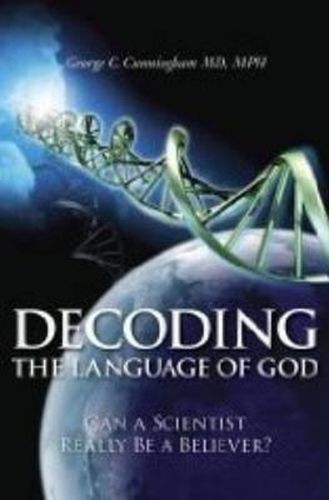Readings Newsletter
Become a Readings Member to make your shopping experience even easier.
Sign in or sign up for free!
You’re not far away from qualifying for FREE standard shipping within Australia
You’ve qualified for FREE standard shipping within Australia
The cart is loading…






In his bestselling book, The Language of God , Francis Collins - the scientist who led the National Institutes of Health’s Human Genome Project - attempted to harmonise the findings of scientific research with Christian belief. In this response to Collins’ work, fellow geneticist George C Cunningham presents a point-by-point rebuttal of The Language of God , arguing that there is no scientifically acceptable evidence to support belief in a personal God and much that discredits it. Written with admirable clarity for the non-scientist, this book covers much of the same ground addressed by Collins in his book: Do moral behaviour, altruism, and similar moral standards across cultures indicate that humans are somehow in touch with a divine lawgiver, as Collins argues, Cunningham cites data from behavioural genetics that suggest a purely naturalistic explanation for morality; and, the existence of evil, both natural and human-caused, has always been a major stumbling block for religious apologists. Cunningham points out how Collins fails to adequately address this issue and the difficulty of reconciling belief in a good God with the existence of evil; Collins refers to the origin of the universe and anthropic coincidences as evidence of God as creator of all of reality. By contrast, Cunningham notes that there are naturalistic interpretations for the big bang and the fine-tuning of the universe, which adequately explain this evidence. Cunningham also devotes chapters to the unreliability of the Bible as a basis for belief; the conflict between naturalistic explanations of reality, which are anchored in scientific research, and supernatural interpretations, which are not; and the many difficulties in conceptualising the origins of the universe in terms of a personal God. Unlike recent hostile attacks on religious belief, Cunningham’s respectful, well-reasoned discussion will appeal to open-minded people across the whole spectrum of belief and disbelief.
$9.00 standard shipping within Australia
FREE standard shipping within Australia for orders over $100.00
Express & International shipping calculated at checkout
In his bestselling book, The Language of God , Francis Collins - the scientist who led the National Institutes of Health’s Human Genome Project - attempted to harmonise the findings of scientific research with Christian belief. In this response to Collins’ work, fellow geneticist George C Cunningham presents a point-by-point rebuttal of The Language of God , arguing that there is no scientifically acceptable evidence to support belief in a personal God and much that discredits it. Written with admirable clarity for the non-scientist, this book covers much of the same ground addressed by Collins in his book: Do moral behaviour, altruism, and similar moral standards across cultures indicate that humans are somehow in touch with a divine lawgiver, as Collins argues, Cunningham cites data from behavioural genetics that suggest a purely naturalistic explanation for morality; and, the existence of evil, both natural and human-caused, has always been a major stumbling block for religious apologists. Cunningham points out how Collins fails to adequately address this issue and the difficulty of reconciling belief in a good God with the existence of evil; Collins refers to the origin of the universe and anthropic coincidences as evidence of God as creator of all of reality. By contrast, Cunningham notes that there are naturalistic interpretations for the big bang and the fine-tuning of the universe, which adequately explain this evidence. Cunningham also devotes chapters to the unreliability of the Bible as a basis for belief; the conflict between naturalistic explanations of reality, which are anchored in scientific research, and supernatural interpretations, which are not; and the many difficulties in conceptualising the origins of the universe in terms of a personal God. Unlike recent hostile attacks on religious belief, Cunningham’s respectful, well-reasoned discussion will appeal to open-minded people across the whole spectrum of belief and disbelief.